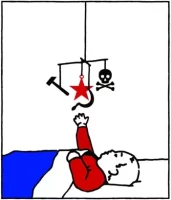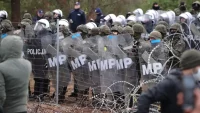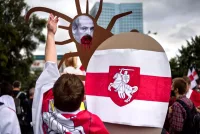
Belarus-EU border crisis reveals wider security threat
When thousands of migrants began freezing to death in the forests on the Belarus border with Poland, Belarusian leader Aliaksandr Lukashenka was forcing the European Union (EU) into a tough choice – either give in to blackmail and welcome migrants whose attempts to trespass the EU border were a result of his policy of luring them to Belarus to put pressure on the EU, or keep the borders closed and declare solidarity with Poland despite its known mistreatment and illegal pushbacks of potential asylum-seekers.
Lukashenka’s action was aptly exploiting three key pressure points of the EU – as a normative power where the human dignity of migrants is overlooked while the European border and coastguard agency Frontex stands by, as a geopolitical actor seeking to externalize its migration problem by signing readmission agreements with transit countries, and as a community of values with the EU-Poland dispute over rule of law.… Seguir leyendo »












